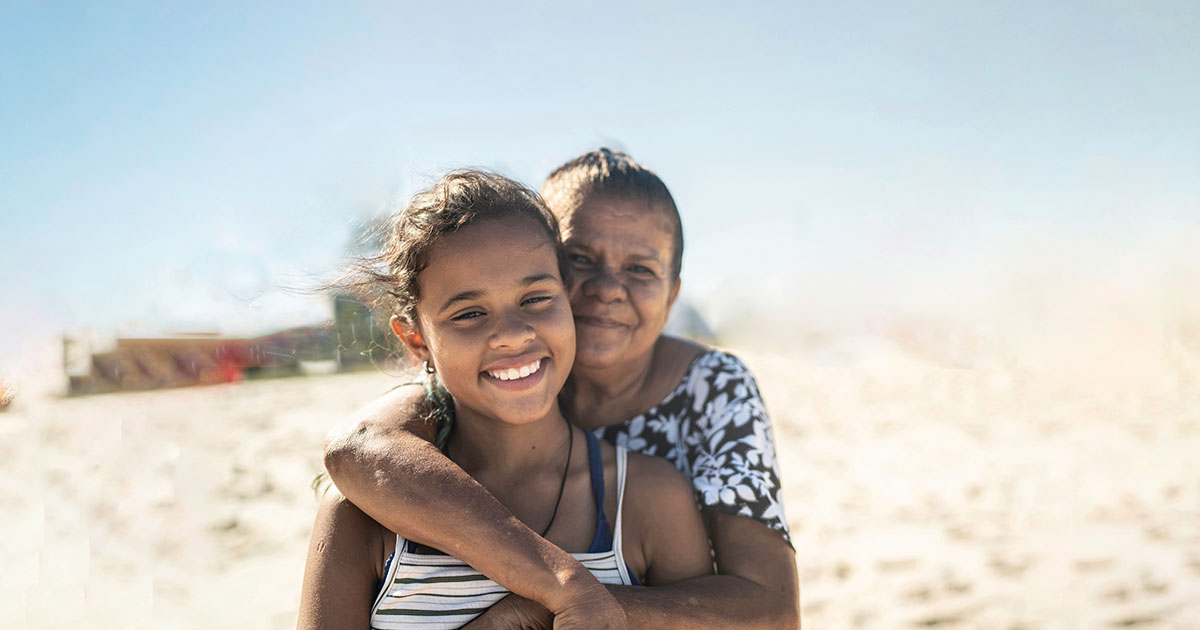NAIDOC Week: Always was, always will be
- Details
At the outset of this important week in our national calendar, I would like to first acknowledge the traditional custodians of this land and pay our respects to their Elders past, present and future for they hold the memories, the culture and dreams of the Aboriginal and Torres Strait Islander people.
Acknowledgements of this type are not merely a procedural formality but are an important part of Mission Australia’s reconciliation journey, as they should be for all Australians. For me, as I hope for all of you as well, they represent an important recognition that the land we live and work on is, always has been and always will be, Aboriginal and Torres Strait Islander land.
As the oldest continuing culture on the planet, there is so much to learn from and about Aboriginal and Torres Strait Islander people who have deep cultural understanding and thousands of years of generational stories and experience.
Celebrating that knowledge is all the more important when reflecting on the heritage and rich history of Aboriginal and Torres Strait Islander communities, which has for so long been disregarded, edited or censored.
Always was, always will be is this year’s NAIDOC Week theme which acknowledges the importance of recognising and celebrating that First Nations people have lived on and managed this continent for more than 65,000 years. The theme invites everyone to embrace and acknowledge the true history of this country, one which spans thousands of generations who have been spiritually and culturally connected to this Country since long before Europeans arrived.
In alignment with our Reconciliation Action Plan and commitment toward reconciliation, many of our staff prioritise supporting and joining Aboriginal and Torres Strait Islander community events and initiatives including NAIDOC Week. I know that many of you will be applying your creative talents to NAIDOC Week celebrations, like the oral history and printed book that Mission Australia staff in Coonamble are supporting the Local Aboriginal Land Council to put together, or the community day activities in Dubbo and community swimming pool events in Lightning Ridge and Walgett that Mission Australia is helping to run.
I encourage everyone to get involved in your community’s NAIDOC Week celebrations – including virtual initiatives – to celebrate and recognise the rich history, culture and achievements of Aboriginal and Torres Strait Islander people.
Celebrations like NAIDOC Week remind us that striving towards true Reconciliation should be part of our daily conversations and everyday life and learning, rather than something we reflect on during the occasional celebration week or day.
We all have a responsibility to prioritise our own continuous personal journey to learn, research and discover as much as we can about the history, culture and lives of Aboriginal and Torres Strait Islander people. By familiarising ourselves with the enduring wisdom and knowledge held by the custodians of the land, this will help further instil in our hearts and minds how recognition of their past, present and futures is actually of benefit to all Australians.
In my own Reconciliation journey, I am consistently grateful to the Aboriginal and Torres Strait Islander people I’ve met and work with who have patiently guided me , and I respect and honour the resilience and courage of every Aboriginal or Torres Strait Islander person who is experiencing challenges or difficulty in their lives.
However, as we know from our daily work at Mission Australia, the data continue to show Aboriginal and Torres Strait Islander communities are still facing disproportionately higher risk factors for unemployment and poverty, homelessness and family violence, including stressors such as poor housing or overcrowding. We also know about the disproportionate level of Aboriginal deaths in custody, a refence point for Australia’s own Black Lives Matter. This year’s pandemic has also exposed many of the inequities that are often overlooked in relation to health and housing for Aboriginal and Torres Strait Islander people.
Many of us feel sad when we hear these measures of disadvantage, and angry when these outcomes don’t improve. It’s 2020 – a new decade – and it’s time we do better to ensure the wellbeing of the custodians of the land we all live and work on.
In a country that believes in a ‘fair go’, it is outrageous that the life expectancy of Aboriginal and Torres Strait Islander people is a decade less on average than other Australians. This is the terrible legacy of colonialism, dispossession and racism.
Recently, our National Aboriginal and Torres Strait Islander Youth Report celebrated the aspirations of young Aboriginal and Torres Strait Islander people and the high value they place on family, culture and community. However, these young people also told us they’re facing a range of challenges such as unacceptably high levels of bullying that we know is linked to racial discrimination, poor mental wellbeing, homelessness and insecure housing.
This is why we will continue to advocate alongside Aboriginal and Torres Strait Islander people so that they are central to the co-design and co-implementation of the services that they need. It’s clear that Aboriginal and Torres Strait Islander people should have far greater influence over the policies, programs and services that affect them.
At Mission Australia, our work takes us into communities throughout the country where we witness the immense resilience, strength and wisdom of many Aboriginal and Torres Strait Islander people, as we look to fulfil our goal of helping to end homelessness and ensure people and communities in need can thrive.
In communities with many Aboriginal and Torres Strait Islander members, we have a strong focus on nurturing mutually supportive relationships with Aboriginal Community Controlled Organisations, such as our wonderful partnership with Bloodwood Tree Association in Western Australia in our work together for the Pilbara Integrated Primary Mental Health Service and Emergency Relief.
It is clear Aboriginal and Torres Strait Islander people must be restored to a place of equity, dignity and respect if we are to move together towards a better and more inclusive future for Australia. After all, everything we do, think and say - always has, and always will - takes place on Aboriginal and Torres Strait Islander land.

James Toomey
CEO Mission Australia
@jbc_toomey
Related media releases
Read about what we’ve been working on, our stance on important social issues and how you make a difference to vulnerable Australians' lives.



